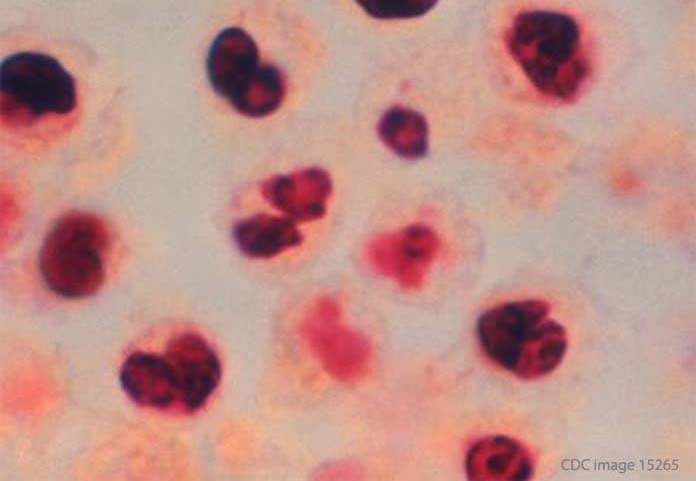Over the last six months, two Mount Carmel hospitals have been linked to Legionnaires’ disease outbreaks that have sickened a total of 18 people, killing one of them. And a third Mount Carmel facility has tested positive for Legionella, the bacteria that causes the severe form of pneumonia. Does Mount Carmel have a Legionnaires’ problem?
Legionnaires’ disease is transmitted when water vapor contaminated with Legionella bacteria is inhaled. And although it in nature, Legionella grows best in warm, stagnant water, especially the water systems of large buildings.
Hotels, hospitals, cruise ships and long-term health care facilities are the most common locations for outbreaks of Legionnaires’ disease. And because this is well-known, it’s considered an industry standard for owners and operators of these and other large buildings to have a water management plan in place, according to the Centers for Disease Control and Prevention (CDC). If Mount Carmel does have these management plans in place at its facilities, they may be in need of revision.
Legionnaires’ Disease Outbreak at Mount Carmel East
At least two people who were hospitalized at Mount Carmel East developed Legionnaires’ disease during their October stays. The Columbus hospital has implemented water restrictions and is working with local and state health officials to determine the source of the outbreak.
Legionella at Mount Carmel School of Nursing
In August, Legionella was discovered on the Franklinton campus of Mount Carmel’s School of Nursing. No illnesses were reported. The positive test result was said to have stemmed from a nearby construction project.
Legionnaires’ Disease Outbreak at Mount Carmel, Grove City
A Legionnaires’ disease outbreak at Mount Carmel’s Grove City hospital that began in April sickened 16 people, killing one of them. Health officials determined that the hospital’s hot water system was the source of the outbreak.
What are the Symptoms?
Symptoms of Legionnaires’ disease include headache, muscle aches, fever, shortness of breath and cough. These infections, which usually develop within two to 14 days of exposure, must be treated with antibiotics. Some people, including current and former smokers, people over 50 and people with compromised immune systems, are at elevated risk for Legionnaires’ disease. Most people with Legionnaires’ disease require hospitalization. About 10 percent of cases are fatal.
If you or a family are part of an outbreak and you need legal help, contact us. Pritzker Hageman Legionnaires’ disease lawyers have decades of experience representing clients who have been sickened and families who have suffered the wrongful death of a loved one. Call us for a free consultation at 1(888) 377-8900 (toll-free), text 612-261-0856 or use the form below.
